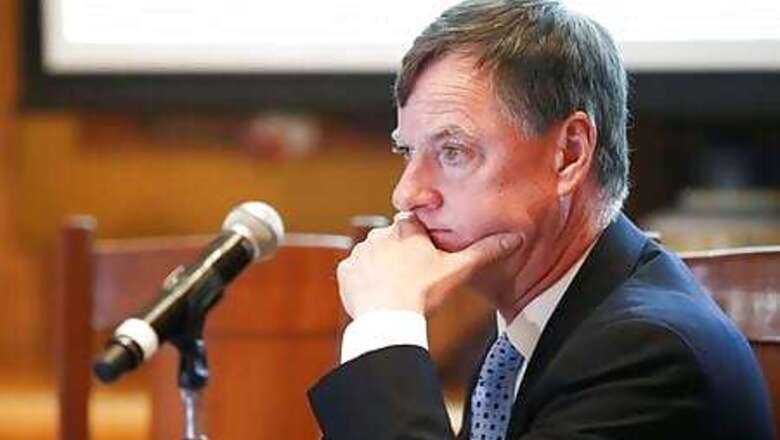
views
The head of the Chicago Federal Reserve on Thursday called on Congress to deliver more fiscal aid and signaled U.S. monetary policy would be eased further and interest rates kept at ultra-low levels for years to help the economy recover its pre-pandemic strength.
Even with further government stimulus, and assuming progress in controlling the coronavirus, Chicago Fed President Charles Evans predicted U.S. output won’t return to pre-crisis levels until late 2022. At that point, he forecast, unemployment will still be between 5% and 5.5%. He added that inflation will likely remain below the Fed’s 2% goal for some time.
“Given my outlook, I expect this means highly accommodative monetary policy will be appropriate for some time to come,” Evans said in remarks prepared for delivery to the Lakeshore Chamber of Commerce in Hammond, Indiana. And if partisan politics blocks lawmakers from agreeing on adequate fiscal relief, he said, that “presents a very significant downside risk to the economy today.”
A new Fed policy framework adopted last week promises to tackle “shortfalls” in employment and aim for above-2% inflation to make up for periods below that level, effectively ruling out any rate hikes under Evans’ forecast until well beyond 2022.
“It is important that our future monetary policy actions are true to the principles laid out in the new consensus statement,” he said.
Indeed, Evans signaled he would like to ease policy further to bolster the pandemic-hit economy, which is showing some signs of improvement though overall remains weak.
One way to do so, even with rates already pinned near zero, would be to promise to keep them there, using massive bond purchases if needed, until inflation or unemployment reach specific targets.
“I think that articulating outcome-based forward guidance for the rate path and asset purchases could be beneficial in the not-too-distant future,” he said.
The Fed is scheduled to hold its next policy meeting in mid-September.
Disclaimer: This post has been auto-published from an agency feed without any modifications to the text and has not been reviewed by an editor
















Comments
0 comment